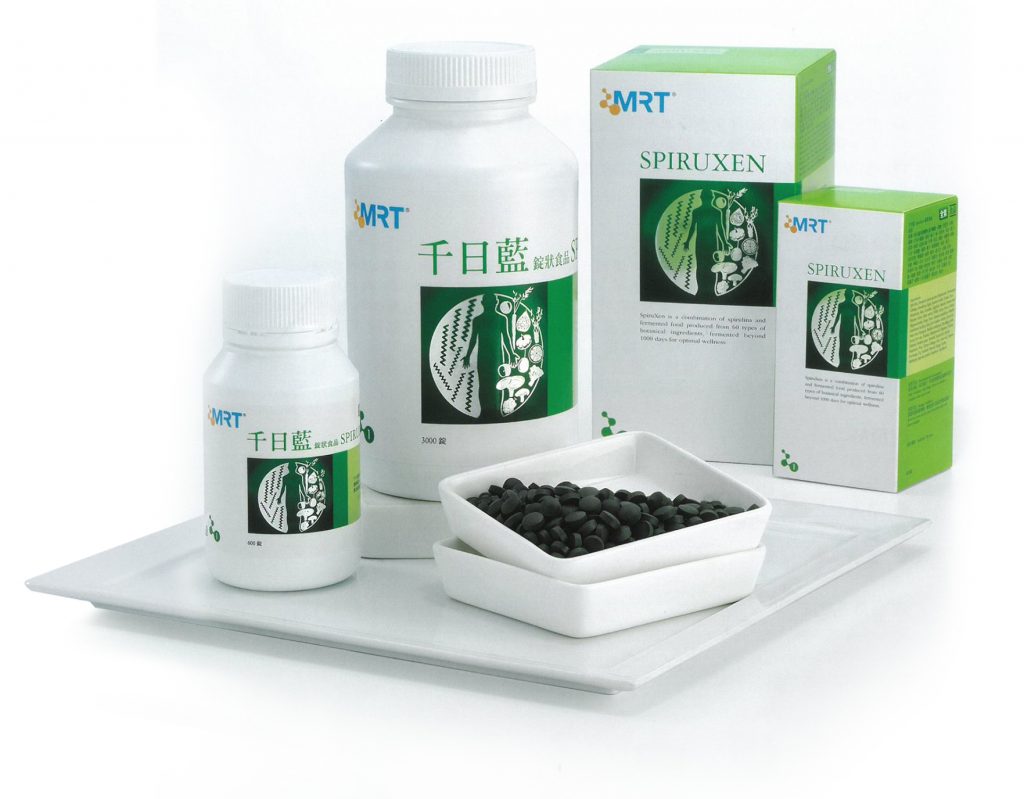What is Cyanobacteria or Spirulina?
Like bacteria, spirulina is also known as such as there is no real nucleus (prokaryotic) in the cell. The difference, however, is that spirulina contains chlorophyll, which allows it to perform photosynthesis like plants and algae. Traces of spirulina are found in fresh water, saltwater and natural springs all over the world.
According to literature, the first edible history of spirulina can be traced back to Chad, Africa, in the 9th century. In recent years, spirulina has gained the reputation of superfood status and has been designated as astronauts by the United States and the European Space Agency (NASA) and (ESA) as essential food when performing tasks. Among the non-traditional treatment programs for children with cancer in Malaysia, the rate of spirulina usage ranks second, which is higher than that of traditional Chinese medicine.
There are currently about 2,000 species of spirulina in the world, and the wide category of spirulina for human consumption include: Arthropira, Arthropira (Spirulina) Maxima, and Arthropira (Spirulina) Platensis. They contain high concentrations of nutrients, are regarded as the most complete food source in the world and is rich in more than 100 kinds of nutrients, including 46 essential nutrients, needed by the human body.
Even the World Health Organization (WHO), the United Nations Food and Agriculture Agency (FAO), the US Food and Drug Administration (FDA) and many other agencies have called spirulina the best food for humans in the 21st century, making it the most ideal nutritional supplement and healthcare product.
The Differences between Spirulina (Blue Algae) and Chlorella
Why did Spirulina become superstars in nutrition?
Spirulina is rich in vitamins B, C and E, as well as a variety of essential trace elements such as calcium, magnesium, sodium, potassium, phosphorus, iodine, selenium, iron, zinc, and copper. The calcium, phosphorus and magnesium content of spirulina is the same as that of milk, the vitamin E level is comparable to malt, and the vitamin B12 level is 4 times that of raw liver. Each of these nutrients has special physiological functions and the lack of any of them may lead to diseases. For example, vitamin B12 does not only treat viral anaemia and neurological diseases, but also effectively improve the liver, digestive system and excretion function. Iron deficiency can lead to anaemia and zinc deficiency and lead to stunted growth. In fact, selenium comes with a host of benefits. In addition to activating DNA repair enzymes, it can also stimulate the production of immunoglobulins and antibodies, eliminate free radicals in the body, reduce the toxicity of certain metals in the body, inhibit carcinogens, and prevent altitude sickness.
Spirulina also has a high amount of phytochemicals, including phycocyanin, chlorophyll, lutein, beta-carotene, and astaxanthin. Its rich content of beta-carotene is 15 times that of carrots and 40-60 times that of spinach. These natural antioxidants have multiple functions to enhance your immunity and have antivirus, antibacterial and anti-cancer properties. Chlorophyll A can also be found in spirulina. Known as “green blood”, it is the reconstituted raw material of human blood that helps the body’s haematopoietic and purifying functions, and can relieve fatigue. It contains high amounts of linoleic acid and linolenic acid which help to balance the cholesterol in the blood, thereby preventing high blood pressure, vascular sclerosis, promote calcium absorption, improve immunity, as well as preventing metabolic disorders and anti-aging. Besides, the polysaccharides in spirulina do not only resist radiation but can also indirectly inhibit the proliferation of cancer cells by enhancing the body’s immunity. In addition, the polysaccharides of spirulina can also increase the activity of SOD in plasma, reduced the production of lipid peroxides, and prevent ageing.
Another characteristic of spirulina is that it is a 100% alkaline food. Experts say that to maintain good health, we must maintain a balance of nutrition consisting of 80% alkaline foods and 20% acidic foods. Meat, seafood, rice, and bread are all acidic foods. Alkaline food choices are extremely limited including vegetables, fruits, egg whites, cheese, and algae. An alkaline body can increase the body’s resistance to diseases and maintain cell health. The human body’s enzyme activity, immune function, repair function, and metabolism can be in the best state only in the slightly alkaline environment of the body’s fluids. Therefore, spirulina with top nutritional content is an ideal and complete dietary supplement. The balanced ratio of natural nutrients help to optimise the body’s nutrient absorption rate.
Spirulina is very good for our body. The health benefits of spirulina include strengthening the immune system, relieving inflammation, fighting chronic diseases, and prevent nutritional disorders. Taking it daily can meet the body’s nutritional needs and maintain good health.
Are there any side effects of Spirulina?

Why choose Elken Spirulina?
Elken Spirulina is cultivated in the world’s first clean cultivation pond. The entire growth process of spirulina has been strictly monitored to ensure the best growth conditions, including sufficient sunlight, oxygen and nutrient supply, ideal tropical temperature and natural alkaline salt water. The harvesting process goes through a strict screening routine and through a high-tech spray drying treatment to retain its nutrients. Without the use of additives, the spirulina powder is then compressed into lozenges through professional technology to maintain the stability of nutrients and allow the spirulina to be consumed in its purest form. Elken Spirulina is not contaminated by any harmful chemicals such as pesticides, insecticides, herbicides, antibiotics or genetically-modified substances during its cultivation, processing, handling and storage process. All processes have obtained multiple international certifications and have also passed more than 327 stringent tests for heavy metals, plasticisers, pesticides, and radiation.
Elken Spirulina is also the only Malaysian Spirulina brand certified by the Japan Health Food Association (JHFA). The association is a unit approved by the Ministry of Health and the Japan Health/Nutrition Food Association. It has very strict and high standards where only ingredients that are scientifically proven to be beneficial to health and improve physical conditions will be certified. Today, only 30% of health foods sold in Japan have been certified by the JHFA and Elken Spirulina has been certified by the JHFA since 1996. Under strict quality control, Elken Spirulina has repeatedly won international awards and certifications since it was launched in the market. With its number of international awards, certifications and a series of clinical studies as its backing, the quality of Elken Spirulina is an absolutely trustworthy product.





